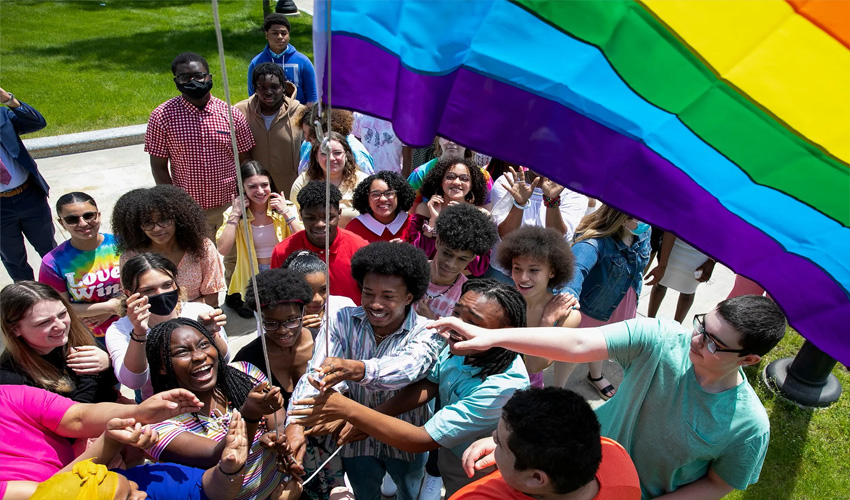Continuing to redefine societal norms and political landscapes,the Public Religion Research Institute (PRRI) report provided a deeper understanding of Gen Z's distinctive outlook on life and the future.
With approximately 30% of Americans falling into the Gen Z category, their impact on the nation's trajectory is undeniable.
The report, titled "A Political and Cultural Glimpse into America's Future," underscores the evolving landscape of identity and political ideology among different generations. Notably, a staggering 28% of Gen Z adults, aged 18 to 25, in the United States identify as lesbian, gay, bisexual, transgender, or queer (LGBTQ), a significantly higher percentage than their Millennial and Baby Boomer counterparts.
The survey, conducted between August 21 and September 15, 2023, encompassed over 6,600 participants ranging from 13 to over 65 years old, with a focus on Gen Z adults and teens. The findings reveal that among Gen Z adults, 72% identify as straight, 15% as bisexual, 5% as gay or lesbian, and 8% as "something else." In stark contrast, only 16% of Millennials and 7% of Baby Boomers identify as LGBTQ.
The report also sheds light on the shifting political landscape, with 43% of Gen Z adults identifying as liberal—a higher percentage than any other generational group. In comparison, 39% of Millennials, 25% of Gen X adults, and 25% of Baby Boomers consider themselves liberal.
Additionally, Gen Z adults and Millennials are less likely than other generational groups to align with the Republican Party, with 21% identifying as Republicans, 30% as Independents, and 36% as Democrats.
Further dissecting the data, the report reveals that Gen Z non-White adults and women show the lowest percentage of Republican identification, with 15% and 18%, respectively.
In a striking reflection of generational perspectives, 58% of Gen Z adults agree with the statement, "We won't be able to solve the country's big problems until the older generation no longer holds power." This sentiment diminishes with each older generation, with 54% of Millennials, 40% of Gen X, 33% of Baby Boomers, and 26% of the Silent Generation expressing similar views.



























